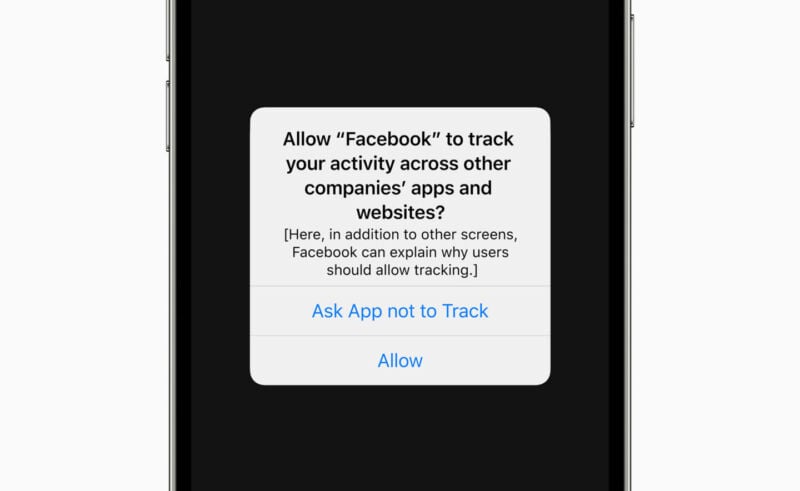The quest for marketing attribution is a tale as old as…well, marketing. One of the most famous quotes on the topic dates back to the nineteenth century, when Philadelphia retailer John Wanamaker (supposedly) lamented, "Half the money I spend on advertising is wasted; the trouble is I don't know which half.”
Fast forward to today and marketing attribution has become central to digital marketing. Thanks to a vast suite of tools and technology, we can seamlessly track customers across a number of touchpoints to see what’s driving revenue and what’s not.
But not everyone is happy about that.
While Mr. Wanamaker would be delighted by the state of marketing attribution today, others are concerned that businesses and platforms are infringing on user privacy. This has sparked a number of changes that have left the future of marketing attribution unclear.
Editor's note: This topic can get pretty technical, so we've put a glossary of important terms at the end of the article for your reference.
What is changing about marketing attribution?
At its core, marketing attribution relies on the ability to track individual users' behavior across websites and devices. As you might expect, this has raised concerns about privacy from individuals, legislators, and platforms alike.
In response, there have been a number of changes that will shape marketing attribution moving forward. Here's a summary of the highlights:
Change #1: No More Third-party Cookies
For nearly 20 years, Google has used third-party cookies to track user behavior across the web for both Google Analytics and its ad network. But new legislation — notably the General Data Protection Regulation (GDPR) and California Consumer Privacy Act (CCPA) — have given users the ability to limit cookies or opt out of them entirely. Some countries, including Austria, France, and Italy, have even gone so far as to outlaw Google Analytics as we know it.
In response to the growing pressure to protect user privacy, Google is phasing out third-party cookies from Chrome in 2024 (a move that Safari and Firefox have already made).
Change #2: Apple Goes Dark
In 2021, Apple introduced App Tracking Transparency (ATT), a privacy feature requiring third-party apps to seek users' permission to track them across other applications and websites. As a result, only 25% of iOS users have now opted into external activity tracking.
This policy had a significant impact on Meta, which relied on Apple’s third-party app data to serve up personalized ads to its users. In an earnings report following the iOS update, Meta CFO Dave Wehner estimated the change would cost the company around $10 billion in lost sales due to weaker ad targeting.

Change #3: Zero-click Takes Over
As platforms fight to keep users on their sites for as long as possible, "zero-click" content is dominating organic search and organic social.
Thanks to features like snippets and knowledge panels, nearly two-thirds of Google searches now end without a click. Similarly, content algorithms for YouTube, Facebook, Instagram, and Twitter all prioritize native content over those with external links. The effects can be pretty drastic, with one study from Hootsuite finding that LinkedIn posts without links get 6x more reach than those with links.
What should marketers do about all of this?
The truth is, “perfect” marketing attribution has never really existed — even with all the cookies and tracking in the world. Buyer’s journeys are rarely straightforward, so any attribution model is bound to have blindspots.
Just think about how many times you’ve scrolled past an ad or gotten a word-of-mouth recommendation that led you to make a purchase later on. These kinds of touchpoints are impossible to track but undoubtedly influential in the path to purchase.
This doesn’t mean marketing attribution will be useless going forward — it’s still important to gather as many insights as you can! But you'll want to make some tweaks to your marketing strategy as you navigate the new frontier of marketing attribution.
1. Collect Your Own Data
With third-party data becoming increasingly scarce, marketers need to double down on collecting first-party and zero-party data. Here are some ways you can gather more information about your customers:
- Use first-party cookies
- Create gated content
- Add pop-up forms to your website
- Build interactive lead-generation tools (graders, quizzes, etc.)
- Send surveys (pro tip: ask customers how they found you!)
- Request reviews
2. Adapt Your Content Strategy
In content marketing, the rules of engagement (literally) are always changing. Here's how you can adapt your content strategy to the new marketing attribution landscape.
- Plan around zero-click: To maximize organic search clicks, target long-tail keywords that are unlikely to have instant answers, featured snippets, or other zero-click features.
- Post native content: For organic social, you're better off sacrificing clicks in exchange for visibility by switching to a native content strategy.
- Think outside the box: Explore less "measurable" channels and formats that you might not have tried otherwise, such as co-branded content, videos and podcasts, and employee advocacy.
3. Tap Into Your Entire Team
We’ve long championed the benefits of marketing and sales alignment, but it will truly be essential going forward. Your sales and customer support teams can share important details about your customers that you might have missed before, including:
- Key decision-makers in the buying process
- Sales questions and objections
- End-user pain points
- Preferred communication channels
Adapting To a Cookieless Future
Digital marketing is already complicated enough. In a post-cookie world, it will only be harder to find the right channels and messaging to reach your customers online. An experienced digital marketing partner can help you adapt to the new challenges and opportunities ahead.
WEBITMD has been helping businesses connect with their customers online since 2008. To learn more about how we can help you grow, reach out to us or download our Growth Stack Guide.
Glossary of Terms
- Third-party cookies: Text files stored on a user's device that allow their browsing activity and information to be tracked across multiple websites.
- Zero-party data: Data a user intentionally shares with a business.
- First-party data: Behavioral data collected by observing a user's activity on your own website.
- GDPR: The General Data Protection Regulation (GDPR) is a landmark data protection law that strictly regulates the collection, tracking, and transfer of personal data of EU citizens.
- CCPA: The California Consumer Privacy Act (CCPA) is a privacy law that gives California consumers certain rights and control over personal information held by businesses operating in California.
- Multi-touch attribution: A method of measuring marketing performance that assigns credit to each touchpoint in a customer's journey with the goal of understanding which channels and campaigns are driving conversions.






.jpg)



.jpg)





![5 Reports to Elevate Your HubSpot Sales Dashboard [+ Examples]](https://blog.webitmd.com/hs-fs/hubfs/Imported_Blog_Media/6-winning-examples-of-a-hubspot-sales-dashboard-2.png?width=767&name=6-winning-examples-of-a-hubspot-sales-dashboard-2.png)